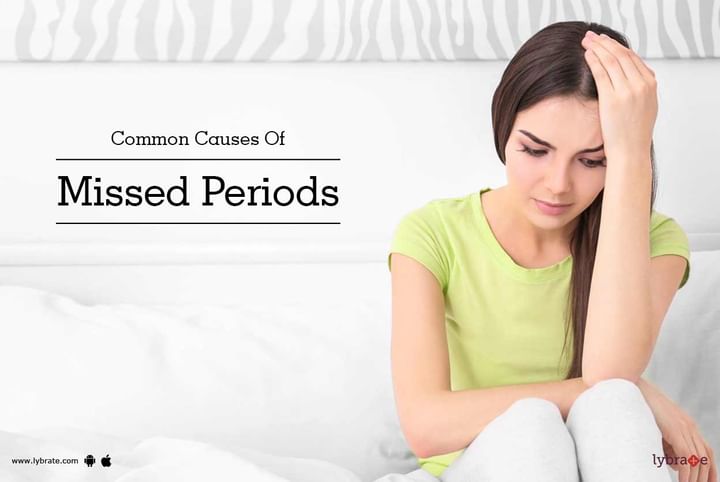Get the App
For Doctors
Login/Sign-up
Last Updated: Jan 10, 2023
BookMark
Report
Common Causes Of Missed Periods
It's anything but difficult to make a hasty judgment when you understand your period is late. In case you're attempting to conceive, you may have this feeling of incredulity. And if you're not, you may feel frustrated or disarrayed in the event that you know it is highly unlikely you could be pregnant. The truth of the matter is, however, the vast majority naturally consider pregnancy at whatever time a period is late, it may be the case that — or one of the numerous different conceivable outcomes. Here's a summary of the common causes behind a missed period:
- PREGNANCY: Sometimes when you miss your period, the cause maybe exactly what you think- you could be pregnant! The initial symptoms of pregnancy such as bloating of the stomach, cramping of stomach, and tenderness in breasts can resemble the feeling that you get before your periods; may create confusion whether you are actually pregnant or if your periods are a little delayed. If your periods are delayed for over 10 days, then it is better to take a home pregnancy test.
- STRESS: Stress can have several effects on your body such as headaches, acne, weight gain and other issues. Stress can also make you miss your periods. When you are stressed, your body synthesizes stress hormones such as cortisol and adrenaline. These elevated levels force your brain to differentiate between essential and nonessential functions of the body. The blood supply to the muscles of the body can increase while systems such as the digestive system or the reproductive system can be subdued. This results in delayed period.
- PCOS: Polycystic Ovary Syndrome (PCOS) is a condition that causes the body to produce more of the male hormone, androgen. Cysts form on the ovaries as a result of this hormone imbalance. This can make ovulation irregular or stop it altogether. Other hormones, such as insulin, can also get out of balance, due to insulin resistance, which is associated with PCOS. Treatment of PCOS focuses on relieving symptoms. Your doctor may prescribe birth control or other medication to help regulate your cycle.
- EXCESSIVE EXERCISE: Working out and maintaining fitness is a great thing to do; although when you overdo it, it restricts your body from producing enough oestrogen, the hormone that helps in completing your menstrual cycle. Thus professionals such as ballet dancers, athletes and gymnasts face a higher chance of suffering through amenorrhea (missing periods) for 3-4 months. Also if you work out too much without consuming enough calories, it can cause disruptions.
- ILLNESS: When your body is battling a disease such as common cold or even fever, your brain starts concentrating on the functions that are important for the body. This can contribute to missing your period.
- WEIGHT: If you lose excessive amount of weight without maintaining a good diet, you can deprive your body from producing oestrogen that helps build up the uterine lining. The same thing happens with eating disorders such as bulimia or anorexia. On the contrary, if you are obese, it can result in over-production of oestrogen that can stop your ovulation in totality. This may lead to heavy, irregular periods. If you wish to discuss any specific problem, you can consult a gynaecologist.



+1.svg)
